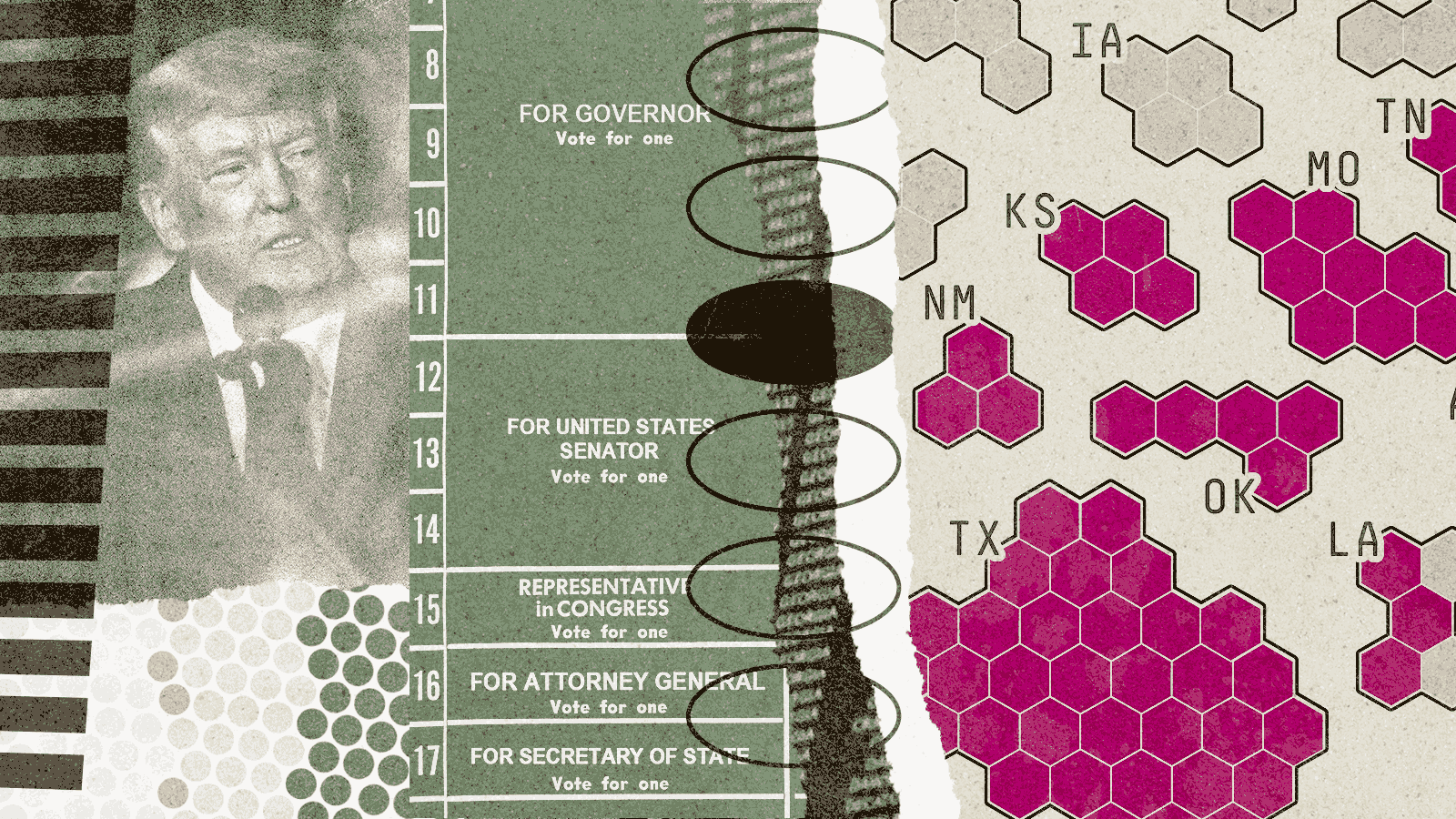60 Percent Of Americans Will Have An Election Denier On The Ballot This Fall

From the Carolinas to California, Montana to Florida, election denialism has spread across the country. Candidates who support former President Donald Trump’s false claims that the 2020 election was stolen will appear on ballots in nearly every state this fall. FiveThirtyEight drew on news reports, debate footage, campaign materials and social media and reached out to every single Republican nominee for the House, Senate, governor, secretary of state and attorney general to determine their position on the 2020 election.
There are a lot of election deniers on the ballot. Out of 552 total Republican nominees running for office, we found 201 who fully denied the legitimacy of the 2020 election. These candidates either clearly stated that the election was stolen from Trump or took legal action to overturn the results, such as voting not to certify election results or joining lawsuits that sought to overturn the election.
Moreover, an additional 61 candidates raised questions around the results of the 2020 election. These candidates haven’t gone so far as to say explicitly that the election was stolen or take legal action to overturn it. However, they haven’t said the election was legitimate either. In fact, they have raised doubts about potential fraud.
There were 123 candidates whose position on the 2020 election we could not determine. They either had on the 2020 election or when asked directly.
But not all Republicans running embrace Trump’s claims. A total of 76 have fully accepted the results of the 2020 election while another 91 have accepted with reservations, meaning they think President Biden won, but still raised concerns about the integrity of the election.
In the House, many of these election deniers look poised to win. Using the latest data from FiveThirtyEight’s 2022 midterm election forecast, we can see that 118 election deniers and eight election doubters have at least a 95 percent chance of winning. Several additional candidates who have denied the election are in competitive races.
In the Senate, though, there will be far fewer election deniers. Only three election deniers are safe bets to join the seven senators not up for reelection who objected to the certification of the 2020 election. However, a handful more still have a real shot at winning.
In governors races, more election deniers stand to prevail. At least two election deniers and three election doubters are poised to be inaugurated as governors next year. And we can’t rule out election deniers being elected governor of swing states like Arizona and Pennsylvania.
We don’t forecast elections for attorney general or secretary of state, but there are also seven election deniers running for attorney general and seven for secretary of state, the post that oversees election administration in most states.
Indeed, an election denier winning election and taking office is more than a symbolic concern. An election-denying secretary of state could refuse to certify an election that he or she believes was rigged. An election-denying governor could attempt to submit electoral votes that defy the will of the people. And election-denying senators and representatives could vote to count those electoral votes. The 2022 election will determine how many of these candidates get that chance.
Are you a Republican nominee or representative of a nominee with questions or concerns about a nominee’s status? Email Nathaniel Rakich or Kaleigh Rogers. Want to do your own analysis? Download the data from Github.
Are election deniers running in your state?
See whether the Republicans running in your state have denied or accepted the legitimacy of the 2020 election
Sort by


